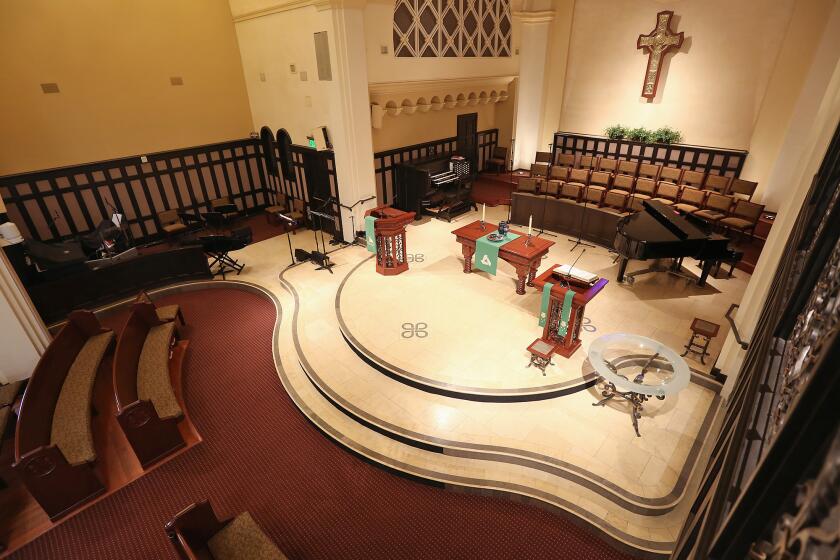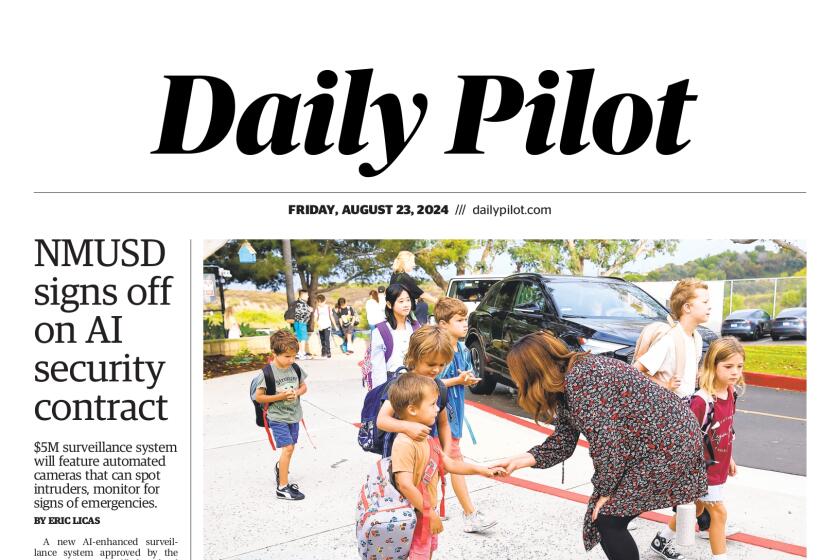Reading is important for everyone
EDITOR’S NOTEBOOK
Here is some alarming news.
In 2002, there were 2,854 students in the Huntington Beach Union
High School District reading below the sixth-grade level. I realize
that is about 3,000 out of a little bit more than 14,000 students, but that makes it no less appalling to me.
Let me dispel the notion that the majority of these students are
either English language learners or special education students --
because they’re not. Supt. Susan Roper said 60% of those nearly 3,000
students are “regular education” students. Further, about 60% of that
60% are boys because there is still a bizarre notion out there that
reading is for girls, she said.
Does that mean knowledge is for girls, too? Wow, lucky us. Too bad
a majority of the world’s leaders are still men, and no wonder that
trend is changing. There was a time when only males were taught to
read. So how did this perception alter so drastically?
It is a problem that needs to be addressed, and not just by
administrators such as Roper and not just by teachers, but by all of
us. There is something wrong with a society that lets such notions
fester.
Perhaps we should somehow pair them with a group of students I met
last week.
You see, I experienced the opposite end of the education spectrum
last week when I took part in the Huntington Beach Chamber of
Commerce’s Youth Leadership Conference.
High school students from Huntington Beach, Fountain Valley and
Westminster joined business people in a series of exercises that
looked at what makes a person a good leader.
Students and adults were paired up and put into small groups. A
student moderator led us through a series of questions and exercises.
Our group was led by Annita De Giglio from Westminster High School,
who was very confident and well spoken -- two indicators that she is
likely well read and already on her way to being a leader.
The groups played a game that many people are probably familiar
with, in which the group is hypothetically stranded and must work
together to decide from a list which things they want to take along.
Our group worked exceedingly well together, even if we didn’t
bring what the experts said we should have.
What I found particularly interesting were the moral and ethical
questions posed first to business people and then to students. I was
reminded that the pressures students face is actually greater than
what we face as adults.
I know it seems backward, but, as I assured students, it does get
easier. Those ethics you want to stand by while keeping friends as a
teenager later define who you are and are something to be proud of.
You realize later in life that standing up for what you believe is
what makes people like and respect you.
As I said, the students I spent the morning with were clearly on
their way to being leaders. In a group of peers and adults, they
confidently voiced their opinions and respectfully listened to
others.
We need students like these, not just to be class president or
secretary, but to be true courageous leaders among their peers and
dispel these absurd notions that reading is not important or that
reading is for girls.
Perhaps these student leaders could go to elementary and middle
schools and speak to the students, who would undoubtedly look up to
them, and tell them how important is it. We must somehow teach them
that reading is knowledge and knowledge is power, because no kid
would ever think power isn’t cool.
* DANETTE GOULET is the city editor. She can be reached at (714)
965-7170 or by e-mail at danette.goulet@latimes.com.
All the latest on Orange County from Orange County.
Get our free TimesOC newsletter.
You may occasionally receive promotional content from the Daily Pilot.



